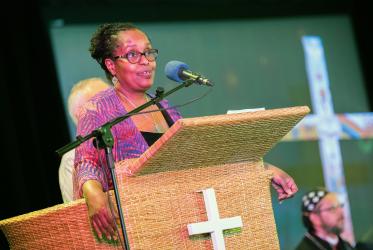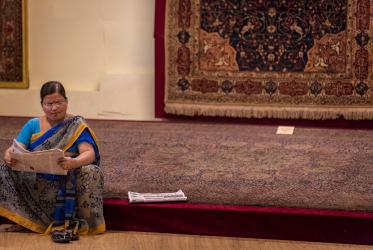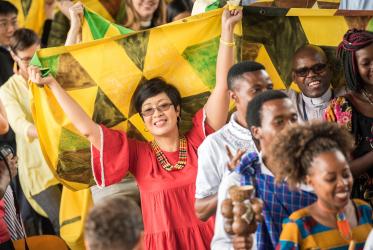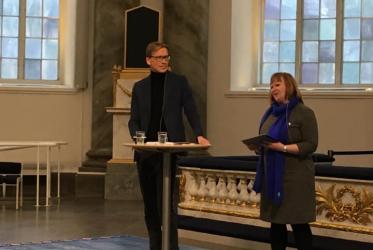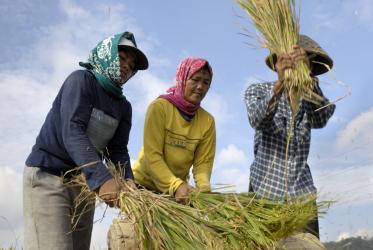Displaying 761 - 780 of 1551
Women’s lives celebrated in prayer
08 March 2019
31 Days of Prayer for Women’s Empowerment
05 March 2019
Thursdays in Black: sharing support, transforming lives
21 February 2019
Ecumenism is a sense of belonging
08 February 2019
Thursdays in Black flourishes in Liberia
07 February 2019
5th Annual Symposium on the Role of Religion and Faith Based Organizations in International Affairs
29 January 2019
Conference Room 2, United Nations secretariat, New York

